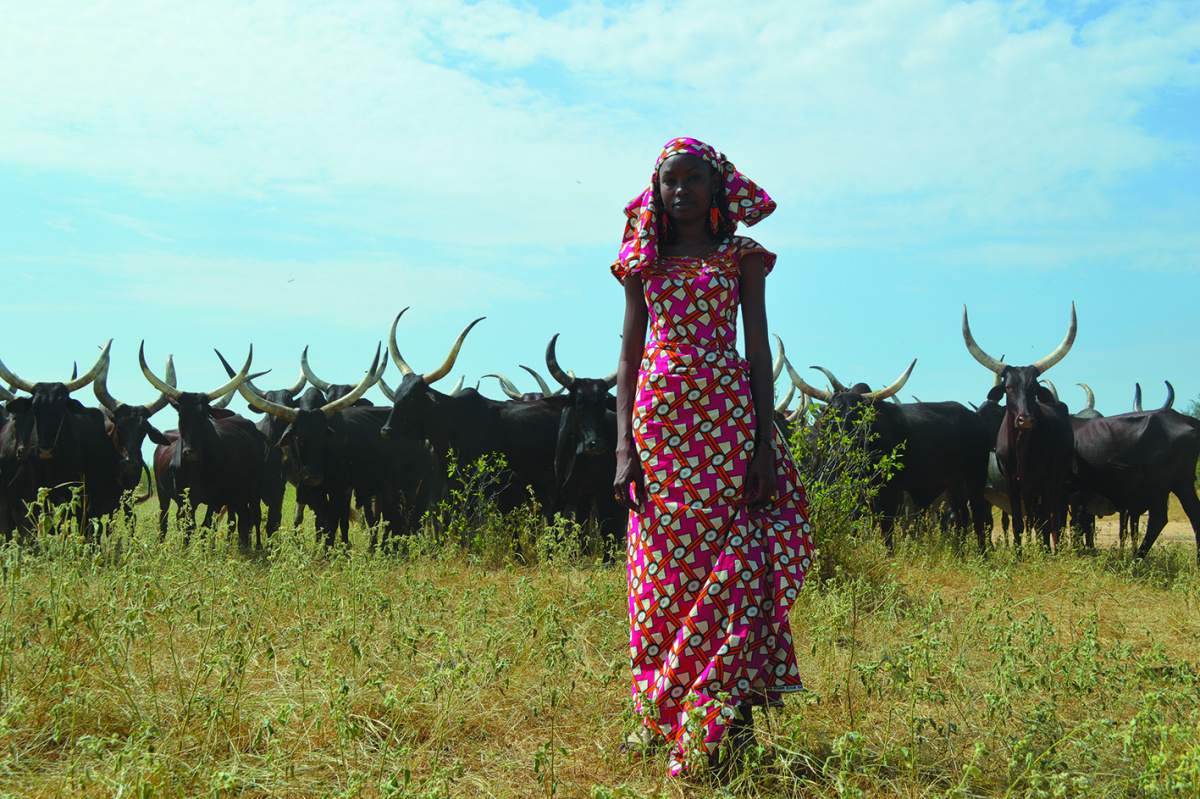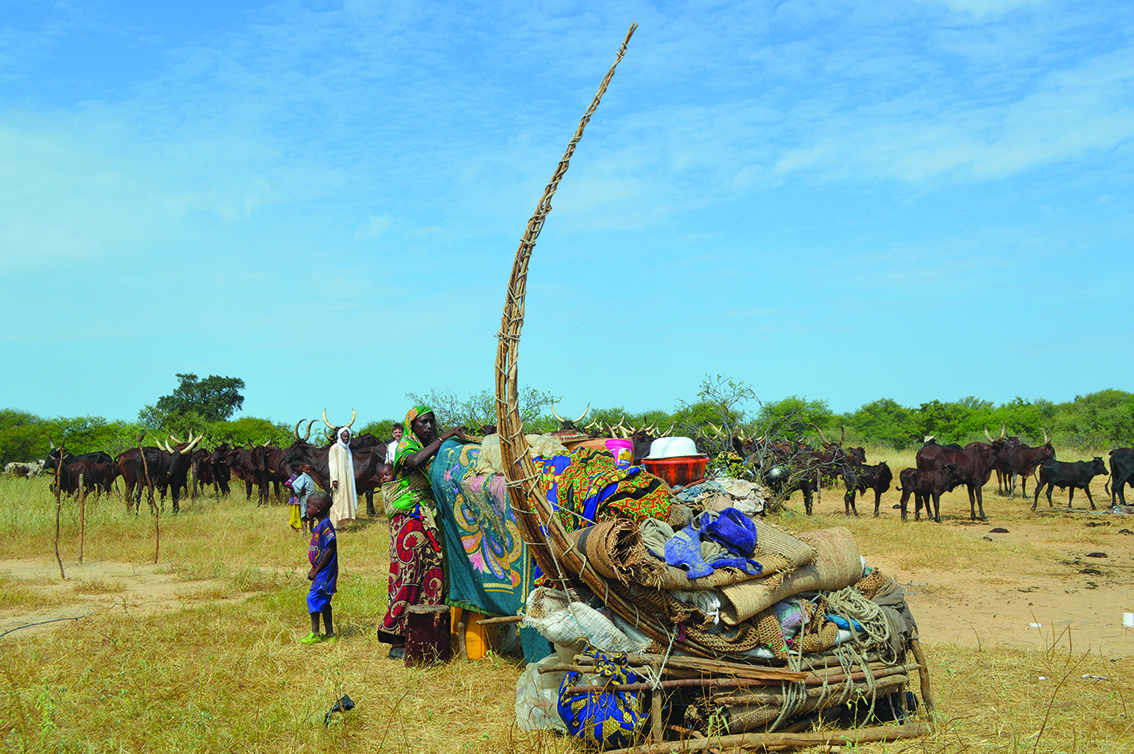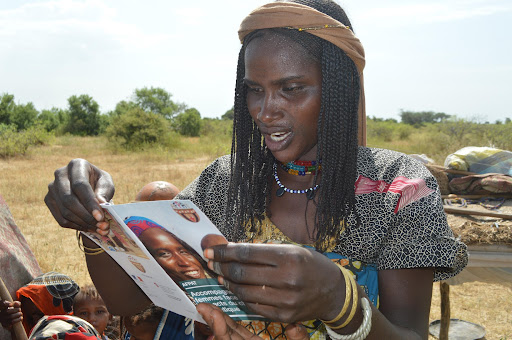Imagining otherwise: steps forward for a greater recognition of Indigenous wisdom and resistance
Excerpt from the special issue of the CEESP publication Policy Matters, focusing on the stories and voices of environmental defenders. Article by Hindou Oumarou Ibrahim *
A call to action
1. The criminalisation of environmental defenders must stop immediately. No one should be killed, assaulted, driven from the land of their ancestors, or simply marginalised for standing up for our most precious common good: life itself.
2. We need dedicated support, resources, intelligence and funding. Right now, for us, the defenders of the environment, resistance has but one name: action. To do this, we need to be given the means to act.
3. Finally, climate policies and actions need to be more participatory, from design to implementation, which means improving Indigenous participation in decision -making.
For Indigenous peoples, protecting the land is not a commitment or a cause – it is a way of life. Ecosystems are our cities and homes, our workplaces and supermarkets, our hospitals and pharmacies, our bookstores and churches, our universities and our diplomas.
We are one with nature, we are part of it because human beings are but one species among millions of others in the natural world. We make our collective decisions based on the traditional wisdom and knowledge inherited from the generations which preceded us, allowing for the generations which will succeed us to live in dignity and collaboration with nature.
In my community, the Mbororo Fulani of Chad, in order to become adults, teenagers must know the names of their ancestors for seven generations and recall what they did during their lives. To make a decision, teenagers must think about their own impact on the next seven generations. This custom allows us to guide our behaviour with permanent care and concern for the protection of nature. By living on the front line, within nature, we are witnesses to these changes. This way of life, built on cooperation with our ecosystems, is often perceived in industrial societies as belonging to the past. In contrast, this way of life presents a roadmap for humanity’s future. Because if we do not immediately stop this war against nature, then it is the very survival of humanity as we know it that is at stake. If we do not stop burning fossil fuels, destroying the last primary forests, emptying our oceans of their life to fill them with plastics, we have little hope of escaping. Let’s be sure: we’ll never win the war against nature.
She is stronger than us.
Indigenous peoples are often among the first to notice climatic disruptions, to sound the alarm on the disappearance of living species. Living on the frontlines, next to nature, we are witnesses to these changes. On the ice floes of the Arctic, in the tropical forests of Africa, Amazonia and Asia, in the steppes and savannahs, in the islands of the Pacific, the Indian Ocean and the Atlantic, industrial companies are waging a war against nature, with local and Indigenous peoples among its first victims. Our indigenous lands, which hold 80% of the world’s biodiversity, are the target of the greed of industrial agriculture. Our rivers are soiled with plastic and chemical pollution. Our coral reefs are threatened by rising sea levels, warming water and ocean acidification. Far too often, we are only a few generations away from disappearing.
For more than 50 years now, since the birth of the first modern movements for the protection of nature, many of us have wanted to build peace with nature. More and more of us are rising up to protest against the destruction of ecosystems, to oppose the theft of our lands, and to end all pollution. We are a group of citizens who demand peace with, and for, our Mother Earth. And every year, in addition to the silent victims of global climate change, which will prove to be the biggest serial killer in human history if we do not meet the goals of the Paris Agreement, many environmental defenders are also victims of a war of humans against humans. Here, we kill for land, for a piece of forest. Elsewhere, it is the scarcity of natural resources that pushes communities, who until then lived peacefully, to fight for the few natural resources that are still intact, whether it be water or fertile land. Further on, it is the industrial fishing boats which, by destroying fish stocks, plunge entire communities into famine and poverty.
Yet, there is another way.
It is that other way that environmental defenders want to pursue: one of close collaborative relationships between women and men, between people and nature. There are many options to enter into resistance and protect our planet. All over the world, a generation, the one that directly succeeds mine, has risen up in recent years. It’s a generation of children and adolescents who understood at an early age, when they should have been living a carefree life – going to school, learning, and playing – that their future was in danger.
They understood that they had to stand up and demand profound change everywhere in order to declare peace with nature. This is a generation calling on big companies to give up fossil fuels and stop all pollution. This is a generation bringing to justice nation-states that have not done enough for the climate and biodiversity. This is a generation willing to fight endlessly simply to ensure a future for this planet and its living beings.
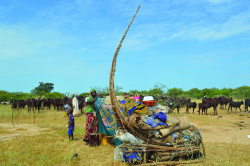 Photo: SALMA KHALIL ASSOCIATION EN TERRE INDIGÈNE
Photo: SALMA KHALIL ASSOCIATION EN TERRE INDIGÈNE
Fulani Pastoralism, Chad.
This generation is our best hope. It brings to the table, without prejudice, solutions that other environmental defenders, many of whom are Indigenous peoples, are fighting to have recognised. With our millennia of contact with nature, we have in our belief systems and traditional knowledge a unique reservoir of solutions, and we are ready to share it. Because today, defending the environment can no longer be reduced to demonstrating in the streets or negotiating international treaties that are too poorly designed, applied and respected.
No, we need to act. Indigenous peoples are already doing it, and they will continue to do so. They will continue to produce food by repairing ecosystems, as my community in the Sahel does, with its transhumant pastoralist way of life. Today we are among the only ranchers in the world to produce meat and milk that is carbon neutral. We are still the exception, but tomorrow we will be the norm.
Indigenous people and forest dwellers are also at the forefront of the climate battle. When their forests burn down, they know how to replant them, repairing ecosystems so that, little by little, birds, mammals and insects return. They also know how to withstand crises, droughts, hurricanes, and torrential rains, and how to find varieties of edible plants even in the worst conditions.
Because of their knowledge of ecosystems, Indigenous peoples are aware of how to avoid the transmission and development of animal diseases that can sometimes infect humans. They know how to derive medicinal plants from the functioning of ecosystems, which can be of great help to the world. They can also predict, through observing the behaviour of animals and plants, the future of weather conditions, thus providing valuable information for adapting to a changing climate.
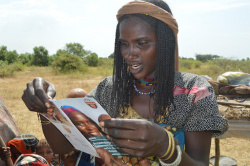
Hindou Oumarou Ibrahim working with an Indigenous Women’s Association in Chad (AFPAT) on climate resilience. Photo by Salma Kahlil, Association en Terre indigène. Hindou is an environmental activist and member of Chad’s pastoralist Mbororo people. She is dedicated to the protection of all Indigenous peoples and to the value of their traditional knowledge in the fight against climate change and biodiversity protection. She began advocating for Indigenous rights and environmental protection at the age of 16, founding the Association for Indigenous Women and Peoples of Chad (AFPAT) and is currently a UN Sustainable Development Goal Advocate and Conservation International Senior Fellow.
Photo: Salma Kahlil, Association en Terre indigènePhoto: Hindou Oumarou Ibrahim works with a woman from an Indigenous Women’s Association in Chad (AFPAT) on climate resilience. Photo by Salma Kahlil, Association en Terre indigène. Hindou is an environmental activist and member of Chad’s pastoralist Mbororo people.
We can create alliances with other societies and institutions to share these solutions and act together, working with all those who want to end the war against nature. In industrial societies, there are also many defenders of the environment. Some never demonstrate in the streets, but dedicate their lives to finding solutions, developing renewable energies and using nature-based solutions to replace plastics and chemicals. We can work together, we can unite to fundamentally change the relationship of humanity with our Mother Earth. For that, we will need to have our rights respected, in particular our right to land. Respect for human rights is an essential pillar of environmental protection.
We, the Indigenous peoples, have thousands of solutions that could be deployed around the world. We have the experience and the know-how that has allowed us to live in harmony with our ecosystems for generations, and we can contribute to and design millions of projects that can protect our common lands, our forests, and our oceans.
To achieve this, it is high time that, beyond simply respecting our rights, the international community comes to our aid. While every year billions of dollars are still invested in intensive agriculture, which destroys our forests and pollutes our soils, or in fossil fuels, which destroy our climate, there is almost no funding to help those who protect 80% of global biodiversity, who are acting in our common good. Almost no one is helping my Indigenous brothers and sisters in their efforts to protect forests, sustainably manage and share resources, or take care of corals, even when these efforts could help prevent future crises, including pandemics.
This must change. Because protecting nature – defending the environment – is not simply an engagement, a cause, or a commitment. It is a way of life. This is the path we must all take, and it is the most beautiful path: that of life, at peace with nature, at last.
This article is an excerpt from the special issue of the CEESP publication Policy Matters, focusing on the stories and voices of environmental defenders.
* * Hindou Oumarou Ibrahim is an environmental activist and member of Chad’s pastoralist Mbororo people. She began advocating for Indigenous rights and environmental protection at age 16, founding the Association for Indigenous Women and Peoples of Chad (AFPAT). She is a member of the Indigenous Peoples of Africa
Coordinating Committee and serves as co-chair of the Facilitative Working Group of the Local Communities and Indigenous Peoples Platform of the UNFCCC. She also serves as a UN Sustainable Development Goal Advocate, Conservation International Board Member, and Earthshot Prize Council Member. Ibrahim’s work with Indigenous communities at the local and global level has achieved broad recognition and support including, the 2021 Rolex Entrepreneur Award; the 2020 Refugee International’s Holbrooke Award; the 2019 Pritzker Emerging Environmental Genius Award and the Danielle Mitterrand Prize.
